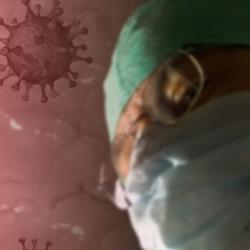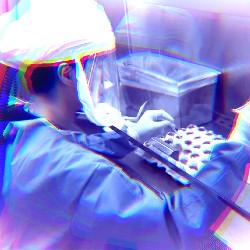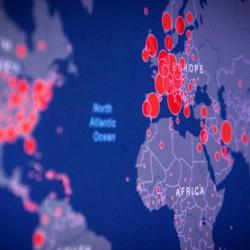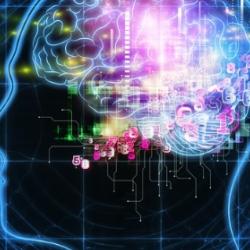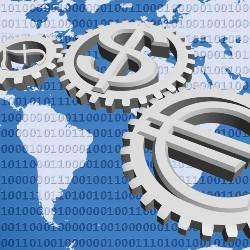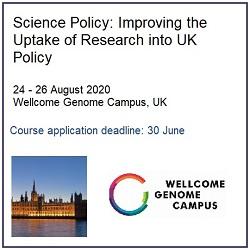Science, Policy & Pandemics
The Centre for Science and Policy (CSaP) works with a unique network of academics and decision-makers to improve the use of evidence and expertise in public policy.
In response to the coronavirus outbreak CSaP, in partnership with Cambridge Infectious Diseases and Cambridge Immunology, has launched a weekly podcast: Science, Policy and Pandemics.
Hosted by Dr Rob Doubleday, CSaP's Executive Director, the evidence-based discussions engage the leading experts at Cambridge University and provide an opportunity for the policy makers / advisers to find out more about the diverse issues caused by (and related to) Covid-19.
Episode 1: Infectious disease modelling
With Professor Sir David Spiegelhalter and Dr Alexandra Freeman of the Winton Centre for Risk and Evidence Communication.
In the context of the current pandemic, the discussion focuses on what research has been done on the best way to communicate evidence and uncertainty, including what is known about public trust in expert knowledge where the stakes are high and there is considerable uncertainty. What confidence can we expect people to place in expert knowledge, and what is the best way to communicate the relationship between expert advice and political decision making?
25 March 2020
Episode 2: Communicating evidence and uncertainty
With Professor Sir David Spiegelhalter and Dr Alexandra Freeman of the Winton Centre for Risk and Evidence Communication.
In the context of the current pandemic, the discussion focuses on what research has been done on the best way to communicate evidence and uncertainty, including what is known about public trust in expert knowledge where the stakes are high and there is considerable uncertainty. What confidence can we expect people to place in expert knowledge, and what is the best way to communicate the relationship between expert advice and political decision making?
1 April 2020
Episode 3: The science of diagnostic testing for Covid-19
Dr Stephen Baker, Professor of Molecular Microbiology, University of Cambridge, leads the discussion on the background to the science of diagnostic testing for Covid-19. What has been learned from leading one of the first conversions of an academic lab to a lab for Covid-19 diagnostics, now carrying out validated rapid testing in Addenbrooke’s Hospital. This includes the barriers, the work-arounds, and what lessons there may be for other labs around the country.
Joining the discussion is epidemiologist Dr Caroline Trotter, who talks about what data the modellers will need to inform decisions about the ‘exit strategy’.
8 April 2020.
Episode 4: Applying statistical methods in modelling Covid-19
Prof Daniela De Angelis, Professor of Statistical Science for Health at the University of Cambridge discusses applying statistical methods to epidemiology, disease transmission, and using models to understand the burden on the NHS posed by covid-19.
Professor De Angelis works on developing and apply statistical methods to characterise epidemics, exploiting the complex body of available information. She is Deputy Director of the MRC Biostatistics Unit at the University of Cambridge. Professor De Angelis has been working throughout the covid-19 response as part of an epidemiological modelling group advising the UK Government.
15 April 2020
Episode 5: Insights from Behavioural Sciences
In this episode, Dr Rob Doubleday spoke with Dr Simone Schnall, Reader in Experimental Social Psychology, University of Cambridge and Dr Sander van der Linden, University Lecturer and Director of the Cambridge Social Decision-Making Laboratory, University of Cambridge, to discuss psychological aspects of the coronavirus pandemic, including the psychological aspects of isolation.
22 April 2020
Episode 6: How is the pandemic impacting the learning, well-being and mental health of children and adolescents?
Sarah-Jayne Blakemore, Professor of Psychology at UCL and Paul Ramchandani, LEGO Professor of Play in Education at the University of Cambridge, discuss how are children, including the most vulnerable, coping with the Covid-19 pandemic and home schooling? Will the Covid-19 pandemic have longer term effects on our education systems? What impact has the pandemic had on adolescents' rites of passage?
29 April 2020
Episode 7: The economic implications of Covid-19
Dr Meredith Crowley, Reader in International Economics, and Dr Christopher Rauh, Lecturer in Economics, University of Cambridge, explore the implications of the Covid-19 shock for international trade and labour market inequalities, with a focus on the UK context.
6 May 2020
Episode 8: Innovative technology in the context of Covid-19
Professor of Communication Systems John Crowcroft, and epidemiologist Dr Caroline Trotter, discuss the role of technology in the Covid-19 pandemic. From trustworthy digital systems to digital identity and immunity passporting, they explore some of the new opportunities and challenges for innovative technology in the context of Covid-19.
13 May 2020


